Search
Search Results

Article
The Principate of Augustus
Augustus (r. 27 BCE to 14 CE), as the adopted son and heir of Julius Caesar (100-44 BCE), brought an end to the Roman Republic, and on 16 January 27 BCE, by Senatorial decree, he became the first Roman emperor. However, he would not be addressed...
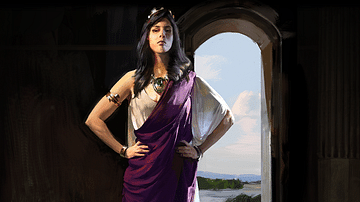
Definition
Dido
Queen Dido (aka Elissa, from Elisha, or Alashiya, her Phoenician name) was a legendary Queen of Tyre in Phoenicia who was forced to flee the city with a loyal band of followers. Sailing west across the Mediterranean she founded the city of...
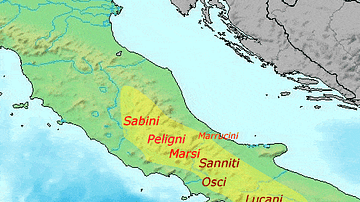
Definition
Angitia
Angitia, which also appears epigraphically as Angita, Arigitia or Anguita, was a goddess among the pre-Roman Italic and Oscan-Umbrian peoples of central Italy and believed to have persisted as a domestic cult figure well into the Roman Republic...

Video
Phaethon and the Sun Chariot in Greek Mythology
The figure of Phaethon in Greek Mythology is best known for his attempt to drive the sun Chariot (the chariot of Helios), which ended up with disastrous results. Phaethon was the son of the titan god of the sun, Helios, and Clymene an ocean...

Definition
Roman Religion
In many societies, ancient and modern, religion has performed a major role in their development, and the Roman Empire was no different. From the beginning Roman religion was polytheistic. From an initial array of gods and spirits, Rome added...
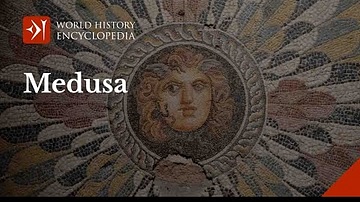
Video
Medusa, the Snake Haired Gorgon in Greek Mythology
The mortal Medusa along with her two immortal sisters Stheno and Euryale are known as the Gorgons and were born to the sea god Phorcys and the sea goddess Ceto in Greek mythology. All three of the gorgons (in the Greek sources) had wings...
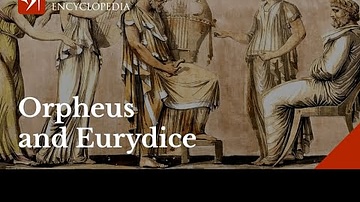
Video
The Tragic Tale of Orpheus and Eurydice
Orpheus is a famous figure from Greek mythology, well known both for his talents with the lyre and kithara, and the tragic tale of his wife, the wood nymph Eurydice. His musical talents could charm wild animals, it could stop streams and...

Article
A Visual Who's Who of Greek Mythology
Achilles The hero of the Trojan War, leader of the Myrmidons, slayer of Hector and Greece's greatest warrior, who sadly came unstuck when Paris sent a flying arrow guided by Apollo, which caught him in his only weak spot, his heel...
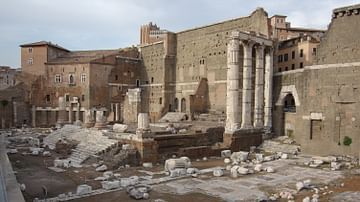
Article
Rome under the Julio-Claudian Dynasty
The Julio-Claudians were the first dynasty to rule the Roman Empire. After the death of the dictator-for-life Julius Caesar in 44 BCE, his adopted son Octavian - later to become known as Augustus (r. 27 BCE - 14 CE) - fought a civil war against...
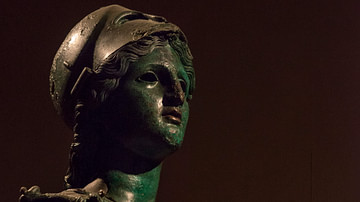
Definition
Minerva
Minerva was the Roman goddess of wisdom, medicine, commerce, handicrafts, poetry, the arts in general, and later, war. In many ways similar to the Greek goddess Athena, she had important temples in Rome and was patron of the Quinquatras festival...